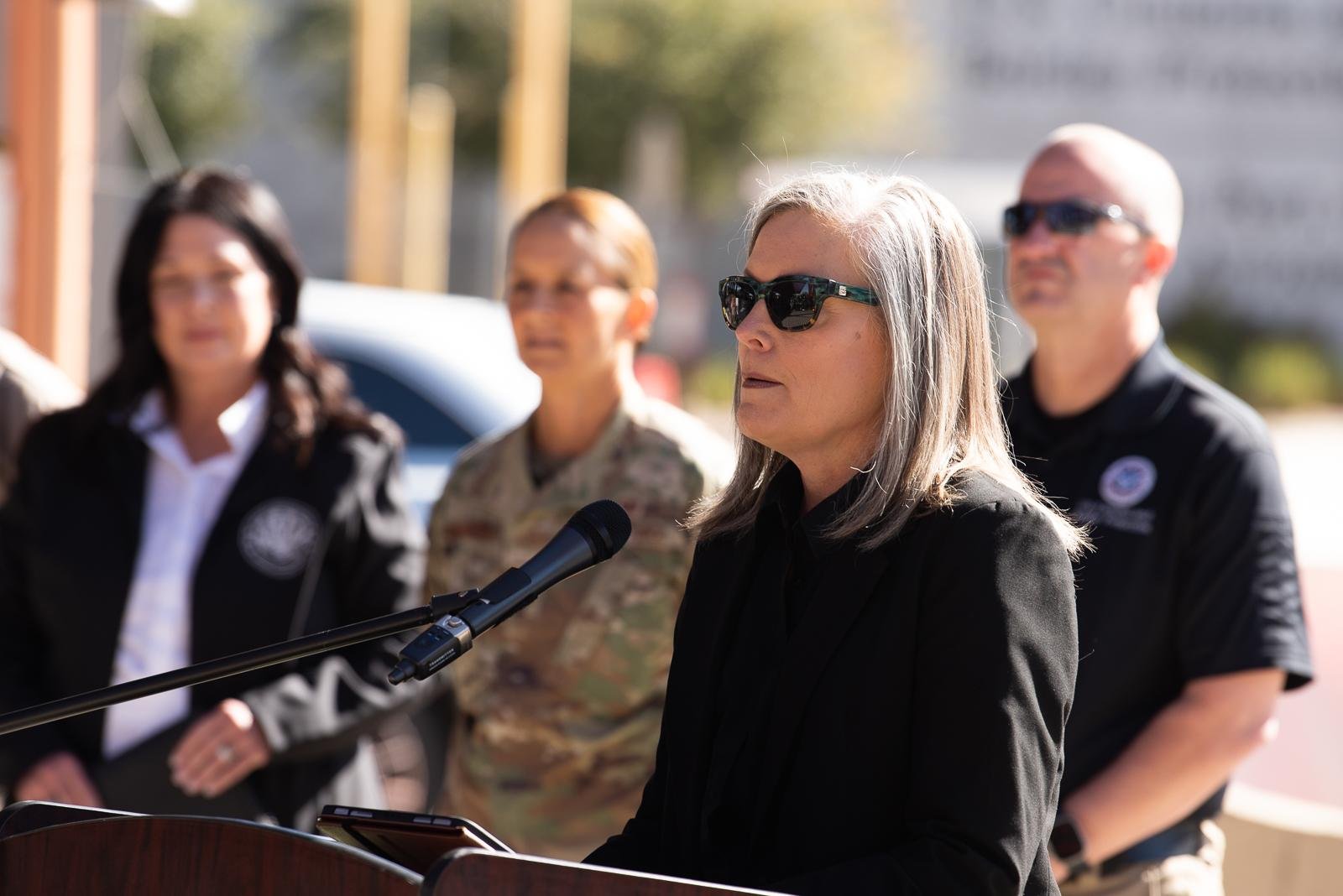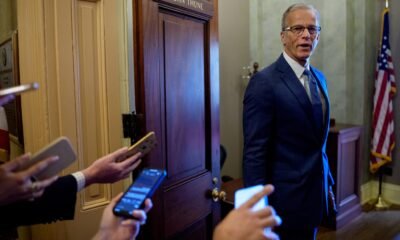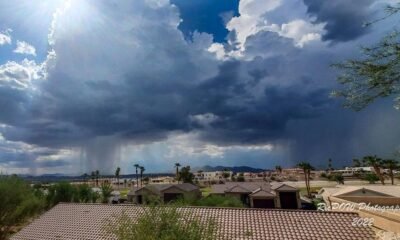arizona
Gov. Hobbs Launches ‘Operation Desert Guardian’ to Combat Arizona’s Drug Smuggling Crisis

Arizona Governor Katie Hobbs announced the establishment of a new task force aimed at tackling drug smuggling in the state’s border counties on Tuesday. This initiative, named Operation Desert Guardian, seeks to collaborate with local law enforcement, county sheriffs, and federal agencies to disrupt drug trafficking networks operating in Pima, Santa Cruz, Cochise, and Yuma counties.
Governor Hobbs signed an executive order mandating the Arizona Department of Emergency and Military Affairs, the Arizona Department of Public Safety, and the Arizona Department of Homeland Security to coordinate and implement this joint task force. “I’m proud to launch Operation Desert Guardian to combat the cartels, stop drug smuggling and human trafficking, and secure Arizona’s border,” she stated. The Governor emphasized ongoing communication with federal representatives and local sheriffs regarding the operation’s objectives and strategies.
The task force will aim to identify and mitigate security vulnerabilities along Arizona’s 370-mile southern border. Its focus includes dismantling supply chains and operational networks utilized by drug smugglers. However, specifics on how these goals will be achieved remain unclear, especially regarding potential overlaps with existing state and federal efforts.
The executive order lacks explicit action plans but asserts the task force will ensure a coordinated strategy with other state agencies. It is expected to report on performance metrics related to interdiction and enforcement operations by the end of August. Former Governor Doug Ducey previously launched a similar initiative, the Arizona Border Strike Force, in 2015, and later collaborated with other Republican governors to create the American Governor’s Border Strike Force.
This new task force builds on last year’s Task Force SAFE, aimed at addressing Arizona’s fentanyl crisis. In July, approximately 40 Arizona National Guard soldiers were deployed to assist U.S. Customs and Border Protection. Their mission included directing traffic and scanning vehicles for contraband at various border crossings and supporting rail operations.
During a November press conference, Hobbs revealed that these soldiers had supported the seizure of over 6 million fentanyl pills and more than 1,400 pounds of other illicit drugs, costing around $3 million in state funding. As part of Task Force SAFE, $17 million was allocated to the Department of Public Safety for local drug interdiction efforts, along with additional funding for veterans’ substance abuse treatment and lifesaving overdose reversal medications.
As of November, Arizona’s state expenditure for border-related law enforcement efforts reached $84 million. In a bid to enhance inter-agency cooperation, Hobbs announced the creation of a Border Coordination Office within the Arizona Department of Homeland Security. She praised the National Guard’s efforts, citing successful interceptions of 19 million fentanyl pills and 6,598 pounds of other illegal drugs at Arizona’s border, alongside 237 weapons that were prevented from crossing into Mexico.
Hobbs expressed confidence that Operation Desert Guardian represents a significant advance in the ongoing efforts to secure the border. Funding for the initiative will be sourced from the state’s $28 million Border Security Fund, marking this as the first order signed by Hobbs in 2023. In January, she allocated $17.2 million from Task Force SAFE to local law enforcement for border security tasks, including drug interdiction and human trafficking investigations. The Cochise County Sheriff’s Office received the largest portion of this funding, totaling $1.9 million, followed closely by the Nogales Police Department at $1.77 million. However, the Pima County Sheriff’s Department did not receive any funding, while agencies in the Tucson metro area collectively obtained $1.8 million.


















